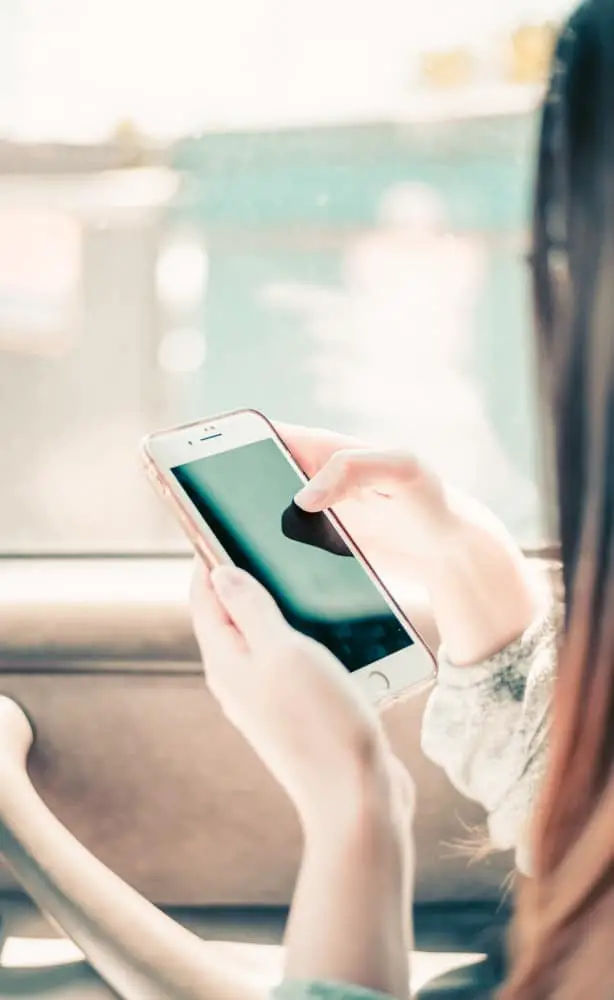We are living in an era where our exposure to devices and screen time is only increasing. With that comes increased exposure to blue light. With multiple blue light protection devices on the market, let’s investigate the pros and cons of blue light screen protector and see if blue light filters are really worth it!
If you’re in a hurry, here is a site I recommended for office equipment with lifetime guarantee!
Pros and cons of blue light screen protector
Below, I have compiled a list of the advantages and disadvantages of using a blue life screen filter.
Advantages of blue light screen protector
- May help reduce eyestrain
- Can minimize retina damage
- Helps promote normal sleep patterns
- Acts as a screen protector for your device
Disadvantages of blue light screen protector
- Screen protectors can be expensive
- Not all anti blue screen protectors offer adequate protection
- May distort the color of your screen
- Only offers protection against blue light from the device
Blue light screen protectors offer some strong advantages, but they are not without their faults. Read on to see if the pros outweigh the cons of a blue light screen protector and whether they are suited to you!
Blue light is attributed to causing digital eye strain and disrupting your sleep patterns. Source

Advantages of blue light screen protector
May help reduce eye strain
Blue light exposure can increase eye strain in individuals who use devices or work in the presence of artificial light that emits blue light.
Many people spend a significant portion of their day working on a device. This has led to an incremental rise in digital eyestrain or computer eyestrain.
Some of the symptoms of digital eye strain include:
- Headaches
- Sore eyes
- Irritated eyes
- Dry eyes
- Blurry vision
If these symptoms sound familiar, then you may be experiencing digital eye strain.
By placing a blue screen protector on your device, it can shield your eyes from blue light exposure and make it more comfortable to work on a device.
That said, the best advice to reduce eye strain is to adopt the 20-20-20 approach.
This involves looking at something 20 feet away for 20 seconds every 20 minutes.
The benefits of the 20-20-20 rule include:
- Reminds you to take a break from looking at the screen
- Helps your eyes to refocus
- Increases the rate of eye blinking
- Reduces the symptoms of computer eye strain
Related: Where Should Light Be When Using A Laptop? + Helpful Tips!
Can minimize retina damage
Studies suggest that working with blue light can cause macular degeneration which is damage to the retina of the eye.
Evidence is currently inconclusive regarding whether blue light does in fact cause damage or not.
Applying a blue screen filter can be considered a preventative step towards protecting your eyes until research becomes clearer on the effects of blue light.
Recommended product: LED light, flicker-free, dimmable + lifetime warranty
Helps promote normal sleep patterns
There is mounting evidence demonstrating that exposure to blue light at nighttime can affect your sleep patterns.
We have all heard the advice about not using electronic devices 2 hour or more before bedtime.
However, did you know that the reason behind this is that blue light suppresses melatonin production.
Cortisol is a hormone which is responsible for waking us up, whereas melatonin is a hormone accountable for helping us to fall asleep.
When we are exposed to blue light, the cortisol hormone is produced, and melatonin production is suppressed.
Consequently, using devices and lights which contains blue light makes it more difficult to sleep.
If you tend to use your phone or watch TV right up to bedtime, then this may be why you experience difficulty falling asleep!
Therefore, by applying a blue light screen filter on your device, it blocks the blue light being exposed to you. Hence, it’s less likely to affect your melatonin production or impact on your sleep pattern.
Tip: If you experience difficulty getting to sleep, evaluate how much time you spend being exposed to blue light before bed, including room lighting and devices.
Acts as a screen protector for your device
Most anti blue light screen protectors also offer a level of protection to your device screen.
As a result, it can also function to prevent your screen from scratches and scrapes which could occur if there was no screen protector provided.
Disadvantages of blue light screen protector
Screen protectors can be expensive
Not all anti blue light screen protectors are costed equally. On top of that, not all anti blue light screen filters have the same level of quality or protection.
Some of them can be bought for budget prices whereas others are on the more expensive scale.
Reading their reviews from other customers is important. This will give you an indication of how good the product is and the quality of service from the company.
Related: 14 Pros And Cons Of Artificial Light + Expert Facts
Not all anti blue screen protectors offer adequate protection
When choosing a screen protector, it’s important to review the spec as well as the range of blue light that it is offering you protection from. Some anti blue light filter screens with only offer a limited range of blue light protection.
High energy short wave blue light between 415 and 455 nm is the most harmful. Source
They may not shield you from the hazardous blue light range, such as the range mentioned above.
This should be a key parameter to look for when choosing a blue light screen filter.
May distort the color of your screen
Some of the cheaper blue light screen filters are known to distort the color of the screen. This is in an attempt to reduce the blue light and converted to another color.
Consequently, your view of the screen may be distorted, or it could make it difficult for you to properly see which colors are on the screen.
If this could pose an issue to you, verify with the company or in the customer reviews if color distortion is likely to occur.
There are anti blue light screen protectors that will allow you to see the screen in the normal color without a yellow tint while also offering you protection from blue light.
Related: Should I Put Desk In Front Of Window? You Need To Know Why
Only offers protection against blue light from the device
When applying a filter to device, you are only being protected from the blue light from that device. Blue light is present practically everywhere, from the sky to light bulbs and all of your devices.
If you’re concerned about exposure from other blue light sources, then you would either need to consider investing in blue light glasses.
Alternatively, you could purchase blue light screens for your other devices. However, this could get expensive. Plus, it may not be feasible if you work with devices that other people also need to use.
Tip: Turn off task lighting when it is not required to reduce excess light in the area.
Related: 21 Pros And Cons Of Natural Light + Surprising Benefits!
Conclusion
With people becoming increasingly conscious of the effects of blue light, blue light filters are growing in popularity. When choosing blue light protection, they’re require some investigation to ensure that it is a quality product which offers adequate blue light shielding.
I was so overwhelmed by how much damage that blue light is cause to my precious eyes that I went looking for a blue light blocking filter.
I have personally looked into the Ocushield screen protectors, and they seem like the most promising product on the market.
They claim to block, “up to 99% of harmful UV & blue light emissions between 300-400nm and up to 40% of harmful blue light between 400-470nm”.
Unfortunately, anti-blue light screen protectors only offer protection against the device itself. If you are interested in minimizing blue light exposure from other devices, perhaps blue light filter glasses would be a more suitable option.
